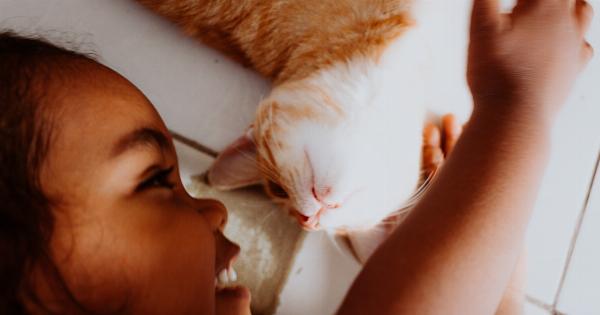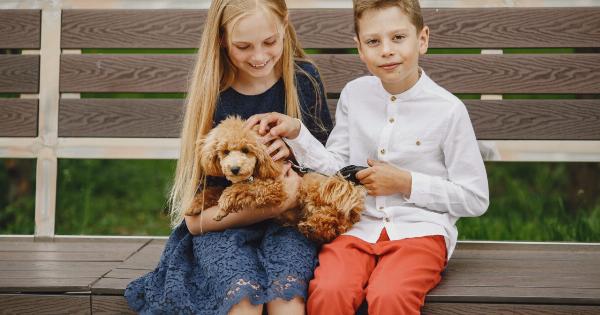Man’s best friend, cuddly companions, and purring furballs – pets have a special place in our hearts. They bring joy, comfort, and unconditional love into our lives.
But have you ever wondered about the scientific connection between pets and joy? Researchers have delved into this fascinating topic to understand the profound impact that our furry friends have on our happiness and well-being. In this article, we will explore some of the remarkable findings on the connection between pets and joy.
The Power of the Bond
Humans and animals share a deep bond that transcends language barriers. This bond is rooted in the symbiotic relationship between humans and domesticated animals that has evolved over thousands of years.
Pets, whether they are dogs, cats, or even smaller critters like rabbits or hamsters, can provide companionship and emotional support.
Pets and Mental Health
Several studies have demonstrated the positive effects of pets on mental health. Interacting with animals, particularly in stressful situations, can help reduce anxiety and lower blood pressure.
Pets offer a sense of purpose and responsibility, which can be particularly beneficial for individuals struggling with depression or other mental health issues. Caring for a pet can provide a sense of routine, promote social interactions, and improve mood.
Physical Health Benefits
Beyond their impact on mental health, pets also contribute to our physical well-being. Regular interaction with pets has been linked to lower levels of cardiovascular disease, reduced cholesterol levels, and improved overall heart health.
Walking a dog or playing with a cat encourages physical activity, and the resulting exercise can lead to weight loss or weight management. Additionally, pets can aid in pain management and help individuals with chronic conditions experience relief.
Pets and Social Support
Pets are natural icebreakers and can serve as a catalyst for social interactions. Taking a dog for a walk or visiting a dog park often leads to conversations with fellow pet owners, creating opportunities for connection.
In addition, pets can help bridge gaps in social support, particularly for individuals who may feel isolated or lonely. The presence of a pet provides companionship and emotional support, reducing feelings of loneliness.
Pets and Children
Pets play a crucial role in the development and well-being of children. Interacting with animals from an early age can teach children empathy, responsibility, and compassion.
Pets also provide a source of emotional support for children, especially during challenging times or when dealing with trauma. Research has shown that having a pet can even improve a child’s cognitive development, including language skills and problem-solving abilities.
Pets in Therapy
The positive effects of animals on human well-being are so impactful that they are often incorporated into therapeutic settings.
Animal-assisted therapy (AAT) involves trained animals, such as dogs or horses, to assist therapists in their work with patients. AAT has been shown to help individuals with various conditions, including autism, post-traumatic stress disorder (PTSD), and even substance abuse.
The presence of a non-judgmental and supportive animal can create a safe and comforting environment for therapy sessions.
Pets and Aging
The benefits of owning a pet extend to older adults as well. Research has indicated that seniors who have pets experience a range of positive outcomes.
The companionship and emotional support provided by a pet can combat feelings of loneliness and isolation. Owning a pet can also provide a sense of purpose and routine, both of which contribute to overall well-being. Additionally, interacting with pets has been shown to reduce cognitive decline and improve memory in older adults.
Therapeutic Effects of Specific Animals
Although any pet can have therapeutic effects, several animals have been specifically acknowledged for their healing abilities.
Dogs
Dogs are known for their loyalty, unconditional love, and ability to form strong bonds with humans. They are commonly used as therapy animals, providing comfort and emotional support in hospitals, nursing homes, and rehabilitation centers.
Service dogs also play a crucial role in assisting individuals with disabilities, providing both physical assistance and companionship.
Cats
Cats are often associated with relaxation and stress reduction. The rhythmic sound of a cat’s purring has a calming effect on humans and can help reduce anxiety.
Cats are also known to be highly perceptive of human emotions and can provide comfort during difficult times.
Horses
Equine therapy is widely used for individuals with physical, mental, and emotional challenges.
The serene nature of these majestic animals, combined with the opportunity for physical contact and riding, can have a profound impact on emotional well-being and trust-building.
Rabbits and Small Animals
Smaller pets, such as rabbits, guinea pigs, or hamsters, can also contribute to our well-being. Their low-maintenance care and cuddly nature make them ideal companions for individuals with limited mobility or space.
These animals can bring joy and playfulness into our lives, even with their relatively small size.
Pet Loss
The relationship between pets and joy is so significant that the loss of a beloved pet can result in profound grief. Losing a pet can be compared to losing a family member or close friend. However, it is essential to acknowledge and validate this grief.
Support groups, counseling, and memorial rituals can help individuals navigate the grieving process and honor the love and joy their pet brought into their lives.
Conclusion
Pets have a remarkable ability to bring joy into our lives. The bond between humans and animals is deeply rooted in our shared history, and the positive effects of this connection are scientifically supported.
From improving mental health to boosting physical well-being, providing social support, benefiting children’s development, and even aiding in therapy, pets play an integral role in enhancing our overall quality of life. So, the next time you snuggle up with your furry friend, remember that they not only bring you happiness but also contribute to your well-being in so many meaningful ways.






























